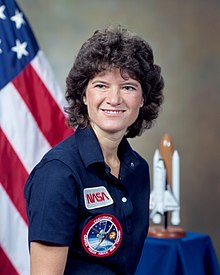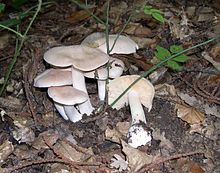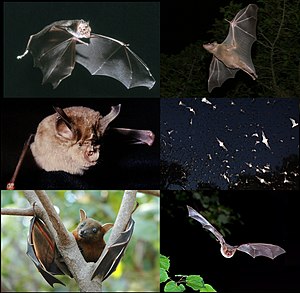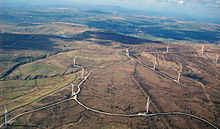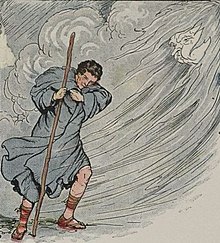
Back Portal:Wisseschaft ALS ውክፔዲያ:ሳይንስ Amharic بوابة:علوم Arabic قيسارية:صيونص ARY بوابة:علوم ARZ Portal:Elm Azerbaijani پوْرتال:علم AZB Портал:Фән Bashkir Portal:Wissnschoft BAR Portal:Siyensya BCL
Science portal

Science is a systematic discipline that builds and organises knowledge in the form of testable hypotheses and predictions about the universe. Modern science is typically divided into two or three major branches: the natural sciences (e.g., physics, chemistry, and biology), which study the physical world; and the behavioural sciences (e.g., economics, psychology, and sociology), which study individuals and societies. The formal sciences (e.g., logic, mathematics, and theoretical computer science), which study formal systems governed by axioms and rules, are sometimes described as being sciences as well; however, they are often regarded as a separate field because they rely on deductive reasoning instead of the scientific method or empirical evidence as their main methodology. Applied sciences are disciplines that use scientific knowledge for practical purposes, such as engineering and medicine. (Full article...)
Featured article -
Featured pictures
Vital articles

Communication is commonly defined as the transmission of information. Its precise definition is disputed and there are disagreements about whether unintentional or failed transmissions are included and whether communication not only transmits meaning but also creates it. Models of communication are simplified overviews of its main components and their interactions. Many models include the idea that a source uses a coding system to express information in the form of a message. The message is sent through a channel to a receiver who has to decode it to understand it. The main field of inquiry investigating communication is called communication studies. (Full article...)
Did you know...
- ... that several science fiction critics praised "Rock Diver", the first short story by American writer Harry Harrison, for its compelling take on technology for passing through matter?
- ... that examples of artificial planets in science fiction include Riverworld, the Well World, and the Death Star?
- ... that Theresia Bauer was named science minister of the year four times?
- ... that the 1998 cyberpunk short story "CyberJoly Drim" caused a controversy in the Polish science fiction and fantasy community?
- ... that according to The Encyclopedia of Science Fiction, the 1913 Polish novel The Cross and the Crescent is "perhaps the first example" of the genre of military science fiction in Polish literature?
- ... that Mary Robertson was the first woman to receive a Doctor of Science degree in medicine from the University of Cape Town?
Get involved
| This portal needs to be updated. Please help update this portal to reflect recent events or newly available information. Relevant discussion may be found on the talk page. |

|

|
Science News
- 16 January 2025 – 2025 in spaceflight
- Blue Origin launches its New Glenn rocket for the first time from Cape Canaveral Space Force Station in Florida, United States. The rocket's second stage, carrying a prototype Blue Ring spacecraft, successfully reaches a geocentric orbit, but its reusable first stage is lost during landing. (CNN)
- The twin satellites SDX01 and SDX02 of the SpaDeX mission, launched in December by the Indian Space Research Organisation, successfully conduct India's first spacecraft docking, with India becoming the fourth country to successfully dock a spacecraft after the United States, Russia, and China. (BBC News)
- SpaceX launches its seventh test flight of the Starship launch vehicle, with an improved second stage, at Starbase in Texas, United States. The first stage is successfully caught by the launch tower but the second stage breaks up shortly before engine shutdown. (CNBC)
- 2 January 2025 – 2025 in paleontology, Dinosaur finds in the United Kingdom
- The largest site of dinosaur footprints of the Cetiosaurus and Megalosaurus dating back to the Middle Jurassic Bathonian stage 166 million years ago is discovered at a quarry in Oxfordshire, England, United Kingdom. (BBC News)
- 25 December 2024 – 2024 in archosaur paleontology
- Scientists confirm the discovery of the Alpkarakush kyrgyzicus dinosaur species in Kyrgyzstan, the first theropod from the Jurassic period to be discovered in Central Asia. (Tempo)
- 23 December 2024 –
- A team of scientists at the North-Eastern Federal University in Sakha Republic, Russia, unveil the highly preserved remains of a 50,000-year-old female juvenile woolly mammoth named Yana. The researchers say Yana was roughly about one-year-old when she died, likely from drowning, and was discovered in the Batagaika crater by locals. (BBC News)
Related portals
Top 10 WikiProject Science Popular articles of the month -
Categories -

